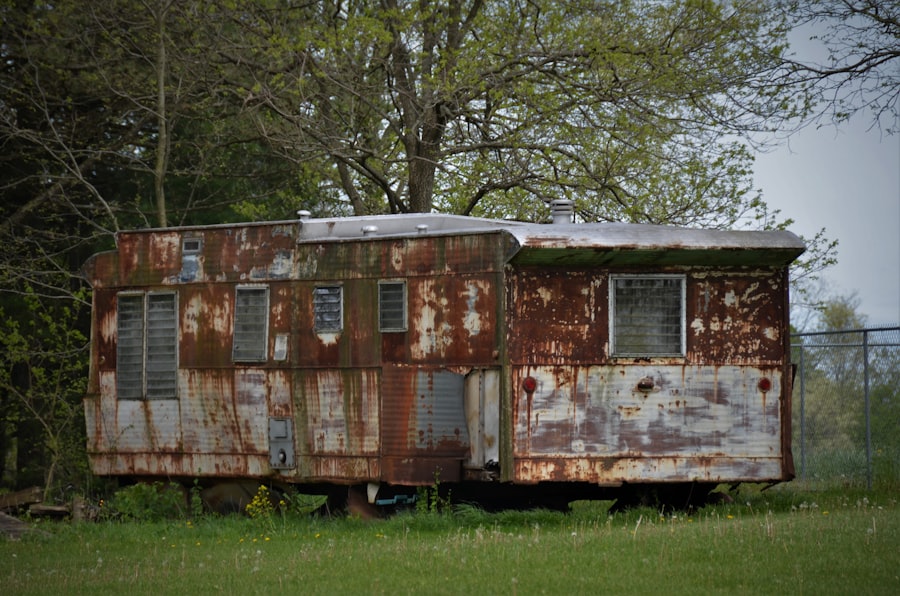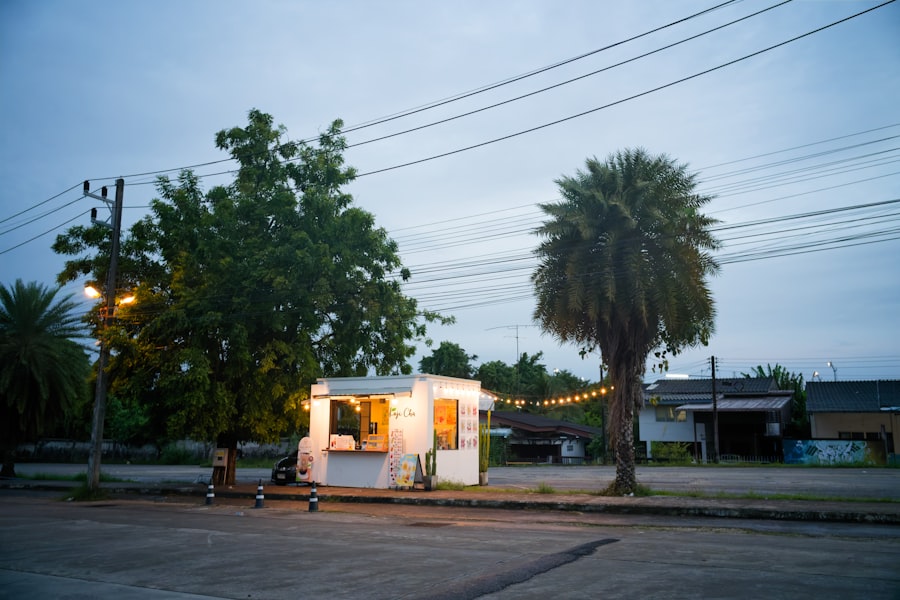Mobile homes, often referred to as manufactured homes, have gained significant popularity in recent years due to their affordability and flexibility. One of the primary benefits of choosing a mobile home is the cost-effectiveness it offers. Compared to traditional site-built homes, mobile homes typically come with a lower price tag, making them an attractive option for first-time homebuyers or those looking to downsize.
The initial investment is often less daunting, allowing individuals and families to allocate their finances toward other essential areas, such as education or retirement savings. In addition to affordability, mobile homes provide a unique sense of community. Many mobile home parks foster a close-knit environment where residents can form lasting friendships and support networks.
This communal aspect can be particularly appealing for families, retirees, or individuals seeking a more social lifestyle. Furthermore, mobile homes can be placed in various locations, from rural settings to urban areas, giving buyers the flexibility to choose a living situation that best suits their lifestyle preferences. The ability to relocate a mobile home also adds an element of freedom that traditional homeowners may not enjoy.
Key Takeaways
- Mobile homes offer affordability and flexibility for homeowners
- Research local real estate listings and mobile home dealers to find options near you
- Consider factors such as location, size, and condition when buying a mobile home
- The purchasing process involves inspections, negotiations, and paperwork
- Customizing your mobile home can enhance comfort and functionality
- Explore financing options such as personal loans, FHA loans, or chattel mortgages
- Regular maintenance and care are essential for preserving the value of your mobile home
- Mobile home communities and parks offer amenities and a sense of community for residents
Finding Mobile Homes for Sale Near You
When it comes to finding mobile homes for sale, the process can be both exciting and overwhelming. A good starting point is to utilize online real estate platforms that specialize in mobile homes. Websites like Zillow, Realtor.com, and specialized sites such as MHBay.com provide extensive listings of available mobile homes in various regions.
These platforms often include detailed descriptions, photographs, and pricing information, allowing potential buyers to narrow down their options based on specific criteria such as size, price range, and location. In addition to online resources, local real estate agents can be invaluable in the search for mobile homes. Many agents have experience in the manufactured housing market and can provide insights into local trends and available properties.
Attending open houses or mobile home expos can also be beneficial, as they allow prospective buyers to see homes in person and ask questions directly to sellers or manufacturers. Networking within local communities or social media groups dedicated to mobile home living can yield leads on available properties that may not be widely advertised.
Factors to Consider When Buying a Mobile Home

Purchasing a mobile home involves several critical factors that potential buyers should carefully consider. One of the foremost aspects is the location of the mobile home. Proximity to essential services such as schools, healthcare facilities, shopping centers, and public transportation can significantly impact daily life.
Additionally, the safety and overall appeal of the neighborhood should be evaluated. Researching local crime rates and community amenities can provide valuable insights into whether a particular area is suitable for long-term living. Another important consideration is the age and condition of the mobile home itself.
Older models may require more maintenance and repairs, which can add unforeseen costs over time. Buyers should conduct thorough inspections to assess the structural integrity, plumbing, electrical systems, and overall condition of the home. Understanding whether the home is classified as real property or personal property is also crucial, as this distinction affects financing options and resale value.
Furthermore, potential buyers should inquire about any restrictions or regulations imposed by local zoning laws or mobile home park rules that could impact their living experience.
The Process of Purchasing a Mobile Home
| Step | Description |
|---|---|
| 1 | Research mobile home options and financing |
| 2 | Visit mobile home parks and dealerships |
| 3 | Choose a mobile home and negotiate the price |
| 4 | Secure financing or pay in cash |
| 5 | Complete the purchase agreement and paperwork |
| 6 | Arrange for delivery and installation |
| 7 | Complete final inspections and move in |
The process of purchasing a mobile home can differ significantly from buying a traditional house. Once a buyer has identified a suitable property, the next step typically involves making an offer. This may require negotiation with the seller regarding price and terms of sale.
If the offer is accepted, buyers will need to secure financing if they are not paying in cash. This often involves obtaining pre-approval from lenders who specialize in mobile home loans. After financing is secured, buyers should conduct a thorough inspection of the home before finalizing the purchase.
This step is crucial to identify any potential issues that could lead to costly repairs down the line. Once all inspections are completed satisfactorily, buyers will proceed with closing the deal, which includes signing necessary paperwork and transferring ownership. It’s essential for buyers to understand all terms outlined in the purchase agreement and ensure they are comfortable with their obligations before proceeding.
Customizing Your Mobile Home to Fit Your Needs
One of the most appealing aspects of mobile home ownership is the opportunity for customization. Unlike traditional homes that may have strict architectural guidelines, mobile homes often allow for more flexibility in design and layout modifications. Homeowners can personalize their space by choosing paint colors, flooring materials, and fixtures that reflect their style and preferences.
This ability to customize creates a sense of ownership and pride in one’s living environment. Moreover, many manufacturers offer various floor plans and design options that cater to different lifestyles and family sizes. Buyers can select features such as open-concept layouts, additional bedrooms or bathrooms, and energy-efficient appliances that align with their needs.
Outdoor spaces can also be enhanced through landscaping or deck additions, providing homeowners with areas for relaxation or entertainment. The customization process allows individuals to create a home that not only meets their functional requirements but also resonates with their personal aesthetic.
Financing Options for Mobile Home Buyers

Financing a mobile home can present unique challenges compared to traditional home loans. Many lenders categorize mobile homes as personal property rather than real estate, which can affect loan terms and interest rates. However, there are several financing options available for prospective buyers.
One common route is obtaining a chattel loan, which is specifically designed for personal property like mobile homes. These loans typically have shorter terms and higher interest rates than conventional mortgages but can be easier to qualify for. Another option is securing a traditional mortgage if the mobile home is permanently affixed to land owned by the buyer.
In this case, lenders may treat the property as real estate, allowing for more favorable loan terms similar to those of traditional homes. Additionally, government-backed loans such as FHA loans are available for eligible buyers purchasing manufactured homes on owned land. Understanding these various financing avenues is crucial for buyers to make informed decisions that align with their financial situations.
Tips for Maintaining and Caring for Your Mobile Home
Maintaining a mobile home requires attention to detail and proactive care to ensure longevity and comfort. Regular inspections are essential for identifying potential issues before they escalate into costly repairs. Homeowners should routinely check for leaks in plumbing systems, inspect roofs for damage or wear, and ensure that heating and cooling systems are functioning efficiently.
Seasonal maintenance tasks such as cleaning gutters and checking insulation can also help maintain energy efficiency. Another critical aspect of caring for a mobile home is understanding its unique construction materials and systems. Many mobile homes utilize different materials than traditional houses; therefore, homeowners should familiarize themselves with proper cleaning methods and maintenance practices specific to their homes.
For instance, vinyl siding may require different cleaning solutions than wood siding. Additionally, keeping up with routine maintenance not only enhances the home’s appearance but also preserves its value over time.
Exploring Mobile Home Communities and Parks
Mobile home communities offer a distinctive living experience that appeals to many individuals and families seeking an affordable housing option without sacrificing quality of life. These communities often provide amenities such as swimming pools, clubhouses, playgrounds, and organized social activities that foster a sense of belonging among residents. Living in a mobile home park can create opportunities for social interaction and community engagement that may be less prevalent in traditional neighborhoods.
Moreover, many mobile home parks are strategically located near essential services such as grocery stores, healthcare facilities, and recreational areas, enhancing convenience for residents. When exploring potential communities, it’s important for prospective buyers to visit multiple parks to assess their atmosphere and amenities firsthand. Engaging with current residents can provide valuable insights into community dynamics and overall satisfaction with living conditions.
Ultimately, choosing the right mobile home community can significantly enhance one’s living experience while providing an affordable housing solution.

